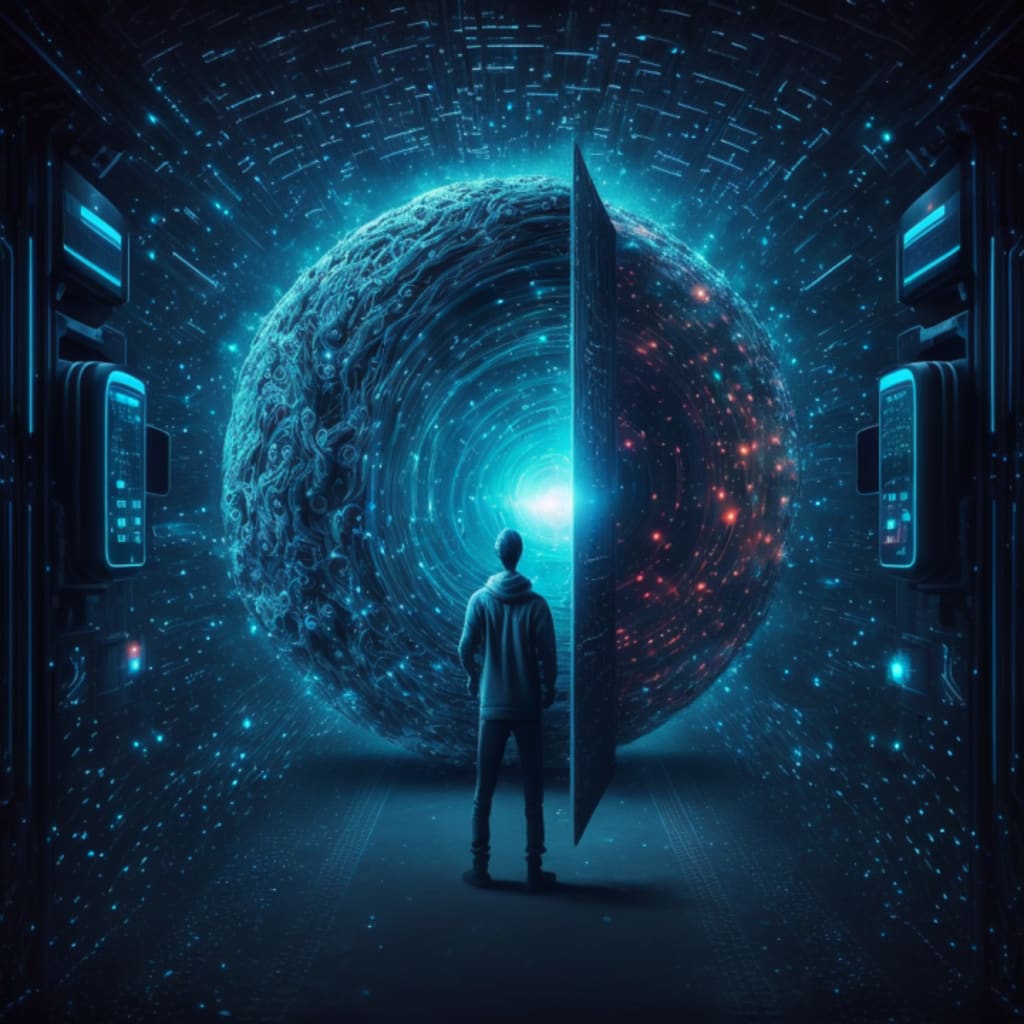We Live in a Simulation. The evidence is everywhere. All you have to do is look.
"Unraveling the Enigma: Could Our Reality Be a Simulation?"

Have you at any point contemplated the idea of the real world? Maybe the more relevant inquiry is: What characterizes reality? Might all that we at some point see, insight, and the sum of our universe be counterfeit? Defenders of reproduction hypothesis propose only that. They suggest that in addition to the fact that it is potential we occupy a reenacted reality, yet entirely it's undeniably likely. As we dig into the profundities of this hypothesis, we should investigate its beginnings, its philosophical underpinnings, and the tempting proof that upholds it.
Recreation hypothesis is certainly not an original idea; hints of it very well may be found in old societies around the world. In any case, present day detailing owes a lot to thinker Scratch Bostrom, whose fundamental paper in 2003 lighted boundless talk regarding the matter. Bostrom's reproduction trilemma places three prospects: possibly we douse ourselves prior to dominating reenactment innovation, we pick not to mimic reality, or we are presently living inside a recreation. Bostrom contends every situation is similarly conceivable.
The idea of making mimicked universes isn't unfamiliar to us. We regularly use PC models for different purposes, from determining weather conditions to displaying human way of behaving. Bostrom recommends that a high level human progress would definitely make mimicked real factors, possibly including reproductions of their own verifiable ages. This flowing impact structures what Bostrom terms "familial reenactments," likened to Russian settling dolls of presence.
Indeed, even visionaries like Elon Musk engage the likelihood that our world may not be the base reality, refering to chances of one out of billions. Astrophysicist Neil deGrasse Tyson takes on a more nonpartisan position, proposing a 50/50 possibility of our existence being fake. In spite of the transcendence of logical talk on recreation hypothesis, it's generally philosophical as opposed to observational.
Hard proof supporting reenactment hypothesis is slippery. In any case, defenders highlight fascinating peculiarities, for example, the Mandela Impact, wherein aggregate bogus recollections challenge our view of the real world. Furthermore, errors or abnormalities as far as we can tell could connote hidden reproduction instruments.
Think about the universe's beginning: the Enormous detonation. Before this enormous occasion, the idea of existence becomes shapeless. According to a religious viewpoint, the possibility of a heavenly maker goes before presence, yet makes one wonder of what catalyzed creation. Reproduction hypothesis proposes another option: a customized universe, represented by many-sided calculations directing each feature of the real world, including the basic laws of material science.
Designs swarm our universe, from the Fibonacci grouping in nature to the brilliant proportion encoded in DNA. This inescapable numerical request indicates a carefully planned recreation. Indeed, even the way of behaving of subatomic particles shows attributes similar to computational cycles, as confirmed by the perplexing twofold cut explore.
Intriguingly, the way of behaving of particles seems to change while noticed, proposing a cognizant eyewitness impacts reality. This idea reaches out to far off worlds, where retrocausality infers that our perception retroactively changes occasions. Such peculiarities challenge ordinary thoughts of causality and indicate the modified idea of our world.
Pundits contend that reproducing a whole universe is past innovative achievability. Notwithstanding, reenactment hypothesis places a nuanced approach much the same as computer game delivering, where assets are dispensed in light of perception. Moreover, progressions in figuring power recommend we may ultimately imitate complex real factors.
Recreation hypothesis prompts significant philosophical request, obscuring the limits between science, transcendentalism, and philosophy. Whether we occupy a mimicked reality or a natural one, the ramifications for how we might interpret presence are significant. As we explore this baffling universe, maybe a definitive truth lies not in knowing reality's pith, but rather in embracing the secrets that cover it.





Comments (1)
Thanks for sharing.